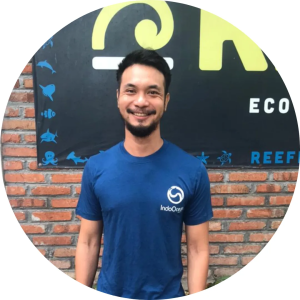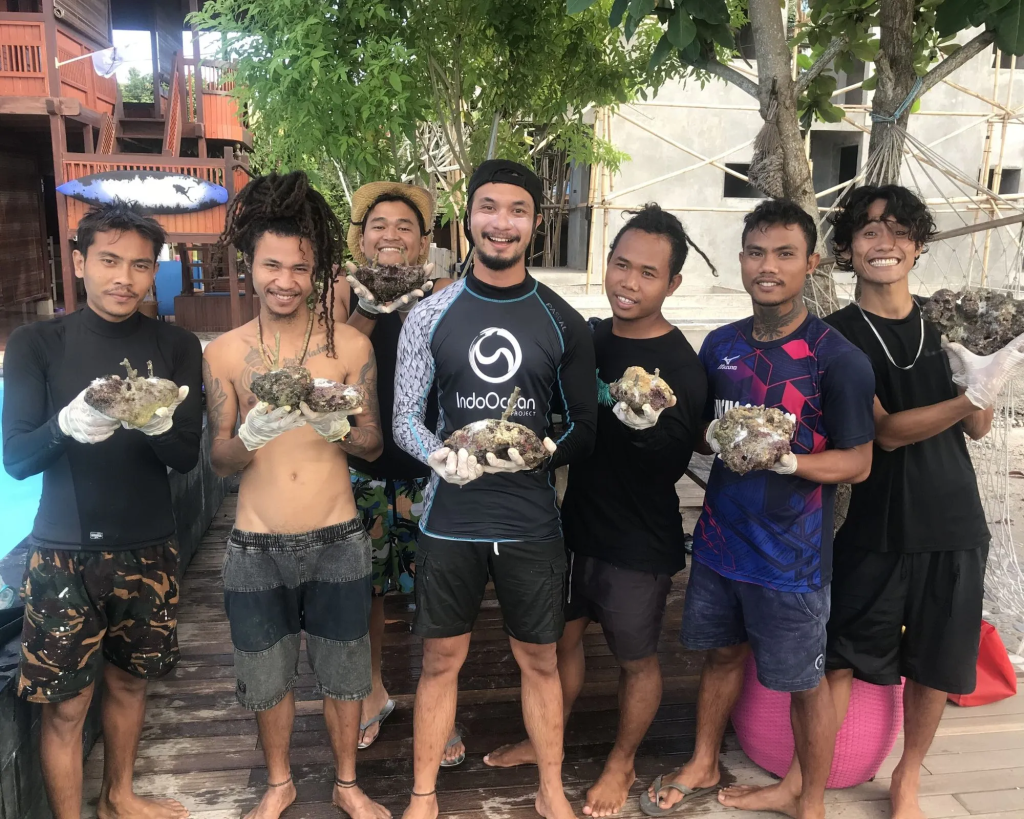“Coral reefs are one of Indonesia’s greatest assets. Protecting them means securing our future, economically, ecologically, and culturally”

Pascal Sebastian, Scientific Director at Indo Ocean Project (IOP), leads the organization’s scientific programs, monitoring efforts, and stakeholder communication, bridging research findings with public policy.
Pascal joined IOP in late 2018, starting as a marine biologist in Nusa Penida. Today, he oversees three project sites: Nusa Penida (Bali), Bira (North Sulawesi), and Raja Ampat (Southwest Papua). His early interest in geology and the ocean guided him toward conservation work, which grew into a dedication to marine research and ecosystem management.
His passion for conservation stems from an awareness of Indonesia’s marine ecosystems—exceptionally rich yet highly vulnerable, both ecologically and socially. For Pascal, conservation is a space where science, communities, and policy intersect. He believes that scientific publications and research should be accessible and beneficial to everyone, including governments and local communities.


At IOP, coral restoration isn’t just an activity—it’s a movement. Integrated into the Dive Master program and coral workshops, the restoration work includes:
- Coral transplantation
- Monitoring coral growth and health
- Weekly maintenance and care
Pascal and his team don’t work alone. Students, interns, and local communities are hands-on in the process.
During the COVID lockdown, with Indo Ocean Project, Pascal initiated a social-ecological project in Penida called The CorAlliance, which involved friends and local community by restoring the damaged reefs. The restored reef has thrived and been maintained through a collaboration with Nuansa Pulau, a community-based restoration group.
When tourism came to a halt during the pandemic, IOP shifted its focus to empowering communities through training and technical support, a legacy that remains active today.
Challenges and Opportunities
The greatest challenges in coral restoration are environmental quality and program sustainability. As Pascal explains, “Coral restoration is not just about planting—it’s about long-term care and management.”
The opportunities, however, are vast—particularly in education, research, and conservation-based tourism. Achieving success, Pascal emphasizes, requires synergy between NGOs, government bodies, and communities.
For those interested in supporting or joining IOP’s restoration work:
- Follow updates on Instagram: @indooceanproject
- IOP offers research scholarships and limited internship opportunities, depending on funding availability
- Certified training programs in coral restoration are available through Ocean Gardener.
